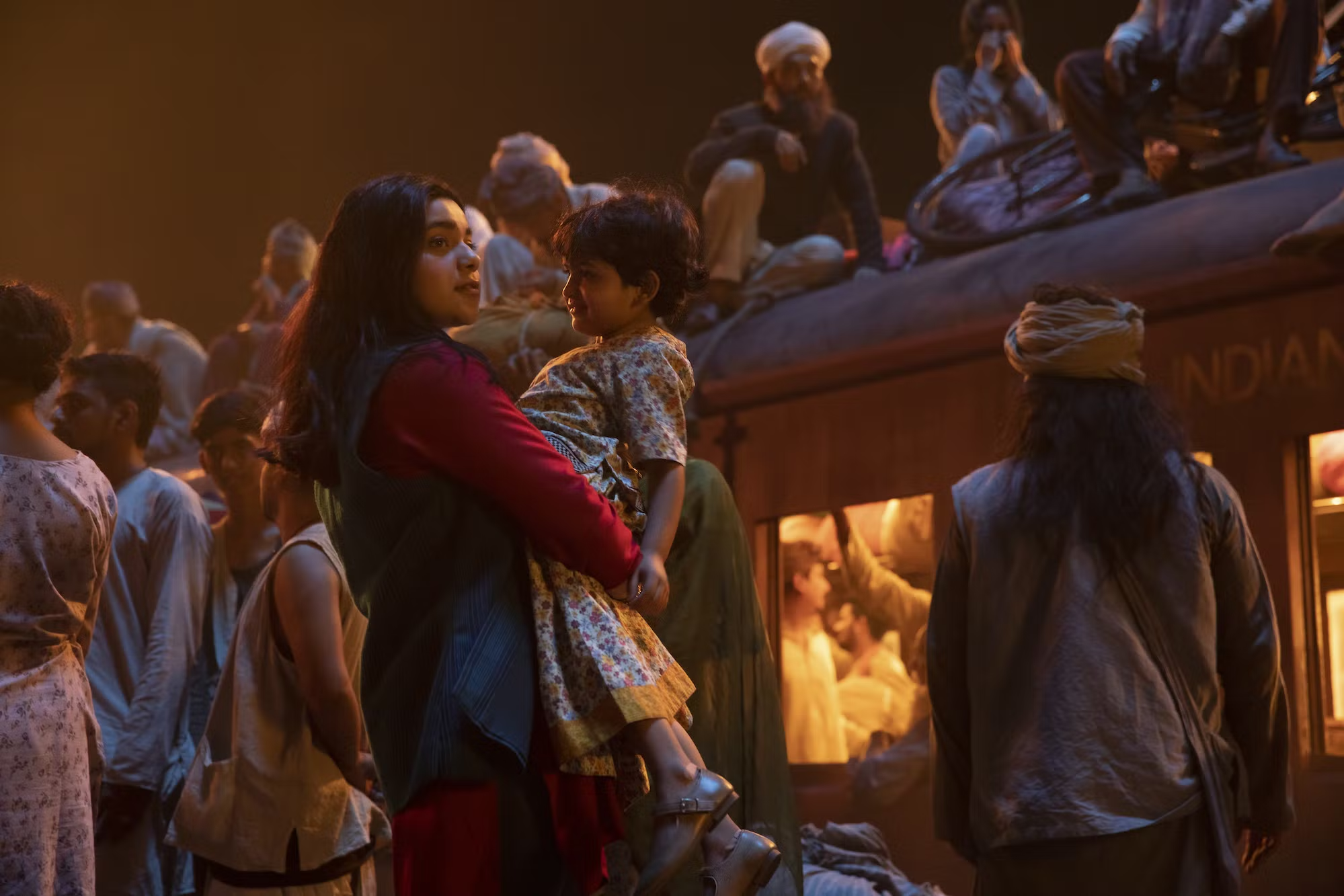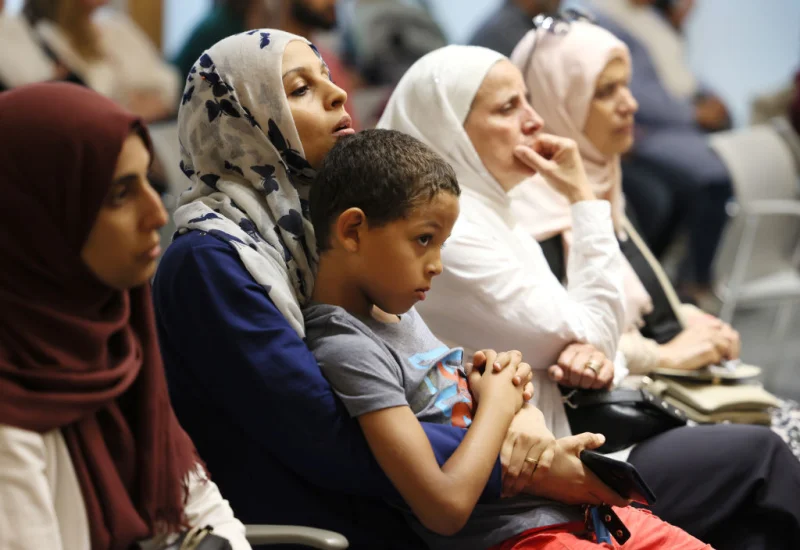Hulu’s Ramy, Netflix’s Mo, and Disney+’s Ms. Marvel: Muslim Heroes in Hollywood Productions

Hollywood is finally producing shows that positively feature Muslim characters, such as Hulu’s Ramy, Netflix’s Mo, and Disney+’s Ms. Marvel.
For the first time, a Muslim character has been chosen to be the superheroine in a new series produced by Marvel Studios of the Walt Disney Studios.
Ms. Marvel focuses on the American Muslim community and her adventures within the larger Marvel universe, where the writer wanted to show the life of a typical American Muslim teenager who gets superpowers and works to balance Western and Islamic lifestyles.
It is worth noting that the series was written by Bisha Ali and directed by the Belgian-Moroccan duo Adil el-Arbi and Bilall Fallah.
On the same truck, Netflix produced the series Mo. The Palestinian-American artist Muhammad Amer, the author and star of the Mo series shown on the Netflix platform, said that his goal in the series is to focus on the story of his family, who had to start a new life for the second time in America after leaving Kuwait because of the war, which is the story of many Palestinians, as he put it.

Muslim Character: Why?
The hero and author of the series—which began airing in August 2022—indicated that he tried to strike a balance between presenting the challenges of his life as a Muslim in the US and making the events comedic.
The series deals with the story of a young Palestinian man born in Kuwait who left it with his family in 1990, arrived in Texas in the United States, and entered an American school at the age of 10.
The series focused on the difficulties that immigrants experience in obtaining American citizenship, and said that it is the first time that a work authored and represented by a Palestinian appeared on American television.
Amer tried to convey details of his life as they are, such as pictures of his family’s home in Kuwait, where he was born, and his family’s home in Palestine.
Journalist Lamia Raafat explained the reasons for the existence of a Muslim superhero in the new Hollywood productions like Ms. Marvel on Disney’s constant endeavor to represent all races and ethnicities to please everyone and win their loyalty.
She explained that after presenting a female superhero in a single movie, Captain Marvel, and a superhero of African origins, the Black Panther, it was the turn not only to have a Muslim superhero but also to represent the entire Indian subcontinent in Kamala Khan, while trying to present this great cultural heritage in 6 episodes.
But because Marvel and other Hollywood entities did not adequately study Muslim audiences in the Middle East, they made many mistakes. For example, one of the female characters made a few remarks about the differences between the women’s and men’s sides of the mosque and the modesty of the first compared to the cleanliness and glamor of the second. These small details detract from the quality of the work, and raise criticism from the Arab viewer, stressed the journalist.

Inspiring Character
The hero of the Ms. Marvel series is Kamala Khan, played by actress Iman Vellani, a Canadian teenager of Pakistani descent.
Commenting on the public impact that she expects for this character, Vellani said that she expects the character of Ms. Marvel to have a great impact on many people, especially on young Muslims and adolescents who have not seen a positive representation of themselves before, whether in reality or on screens.
The creators and screenwriters of the series Ms. Marvel stated that they were inspired by the character of the Muslim superhero Kamala Khan from their teenage experiences with Muslim girls in Western societies.
The series tells the story of its superheroine, Khan, an American Muslim teenager who lives with her family in New Jersey, but her life begins to change dramatically when she acquires supernatural abilities.
At the beginning of the events of the story of the series, which is full of suspense and excitement, one sees that the teenage Kamala struggles to reconcile multiple identities, as she is a high school student and faces bullies because of the color of her skin and her religion, and because she is a Muslim who goes to the mosque with her family to pray.
But in the midst of this struggle, Kamala discovers that she has supernatural powers that make her able to release strange energy waves from her bracelets, as well as make her invisible. The Muslim teenager soon realizes that she has superpowers, just like the superheroes she has always looked up to.
From this point begins the journey of Kamala’s adventures, which has to balance her studies and family life on the one hand, and her supernatural works on the other.
The Ms. Marvel series began showing on the Disney+ channel on June 8th.
It is noteworthy that Marvel Studios had introduced Kamala Khan as a secondary character for the first time in 2013. Now, 9 years after, the character has her own series in which she plays the main role.
Challenging Islamophobia
Evelyn Alsultany, Associate Professor of American Studies and Ethnicity at USC Dornsife College, is feeling optimistic now that Hollywood production including Muslim characters, along with US universities’ adjustment of the dining hall hours to accommodate Muslim students who fast during Ramadan, while increasing the number of “reflection spaces” on campus to facilitate Muslim ritual prayer.

Moreover, Nike launched its Pro Hijab, a headscarf for Muslim women athletes, and Olympic medalist Ibtihaj Muhammad became its model. Muhammad also served as the inspiration for the first Muslim Barbie doll. “These initiatives enhance our sense of belonging as Muslims in the US—but they are not enough to actually challenge Islamophobia,” she emphasized.
The Professor said that in the 2010s, as the nation grappled with a history of racism and inequality, a new rubric of “diversity, equity, and inclusion” created an opening for Muslims to be seen as a beleaguered minority.
The harsh attacks on Muslims led to widespread recognition that Muslims are demonized and targets of individual hate and repressive state policies.










